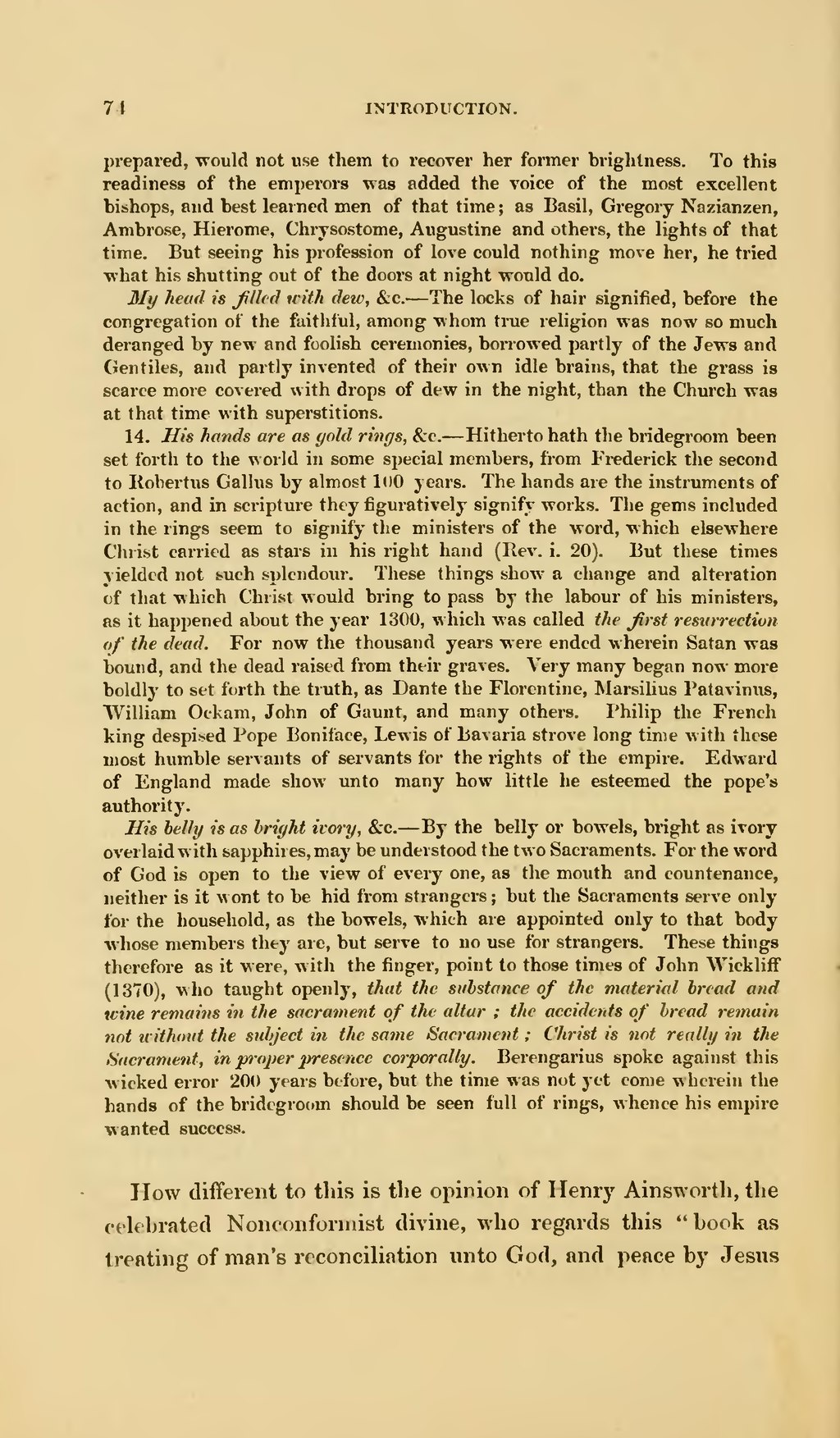prepared, would not use them to recover her former brightness. To this readiness of the emperors was added the voice of the most excellent bishops, and best learned men of that time; as Basil, Gregory Nazianzen, Ambrose, Hierome, Chrysostome, Augustine and others, the lights of that time. But seeing his profession of love could nothing move her, he tried what his shutting out of the doors at night would do.
My head is filled with dew, &c.—The locks of hair signified, before the congregation of the faithful, among whom true religion was now so much deranged by new and foolish ceremonies, borrowed partly of the Jews and Gentiles, and partly invented of their own idle brains, that the grass is scarce more covered with drops of dew in the night, than the Church was at that time with superstitions.
14. His hands are as gold rings, &c.—Hitherto hath the bridegroom been set forth to the world in some special members, from Frederick the second to Robertus Gallus by almost 100 years. The hands are the instruments of action, and in scripture they figuratively signify works. The gems included in the rings seem to signify the ministers of the word, which elsewhere Christ carried as stars in his right hand (Rev. i. 20). But these times yielded not such splendour. These things show a change and alteration of that which Christ would bring to pass by the labour of his ministers, as it happened about the year 1300, which was called the first resurrection of the dead. For now the thousand years were ended wherein Satan was bound, and the dead raised from their graves. Very many began now more boldly to set forth the truth, as Dante the Florentine, Marsilius Patavinus, William Ockam, John of Gaunt, and many others. Philip the French king despised Pope Boniface, Lewis of Bavaria strove long time with these most humble servants of servants for the rights of the empire. Edward of England made show unto many how little he esteemed the pope's authority.
His belly is as bright ivory, &c.—By the belly or bowels, bright as ivory overlaid with sapphires, may be understood the two Sacraments. For the word of God is open to the view of every one, as the mouth and countenance, neither is it wont to be hid from strangers; but the Sacraments serve only for the household, as the bowels, which are appointed only to that body whose members they are, but serve to no use for strangers. These things therefore as it were, with the finger, point to those times of John Wickliff (1370), who taught openly, that the substance of the material bread and wine remains in the sacrament of the altar; the accidents of bread remain not without the subject in the same Sacrament; Christ is not really in the Sacrament, in proper presence corporally. Berengarius spoke against this wicked error 200 years before, but the time was not yet come wherein the hands of the bridegroom should be seen full of rings, whence his empire wanted success.
How different to this is the opinion of Henry Ainsworth, the
celebrated Nonconformist divine, who regards this "book as
treating of man's reconciliation unto God, and peace by Jesus
